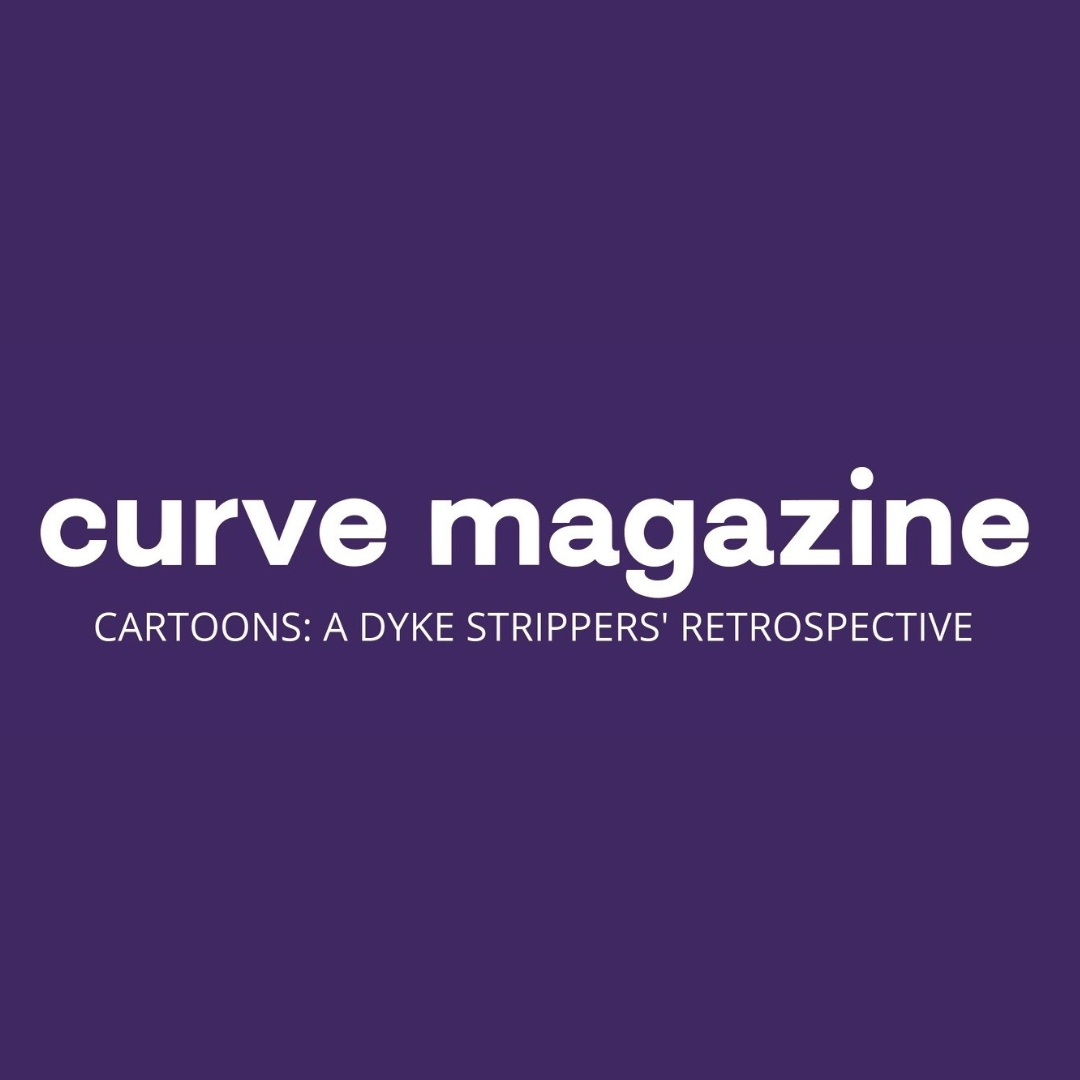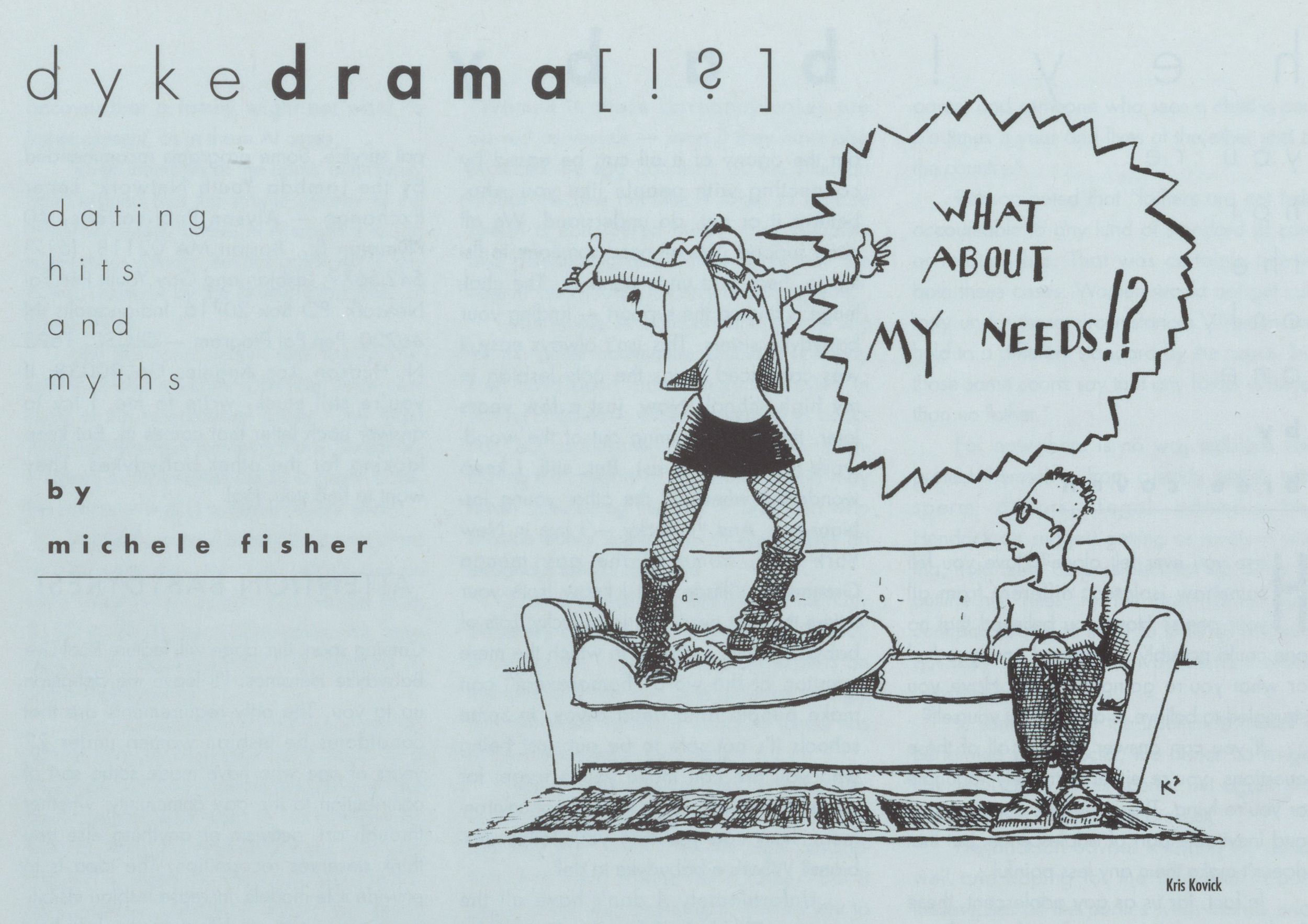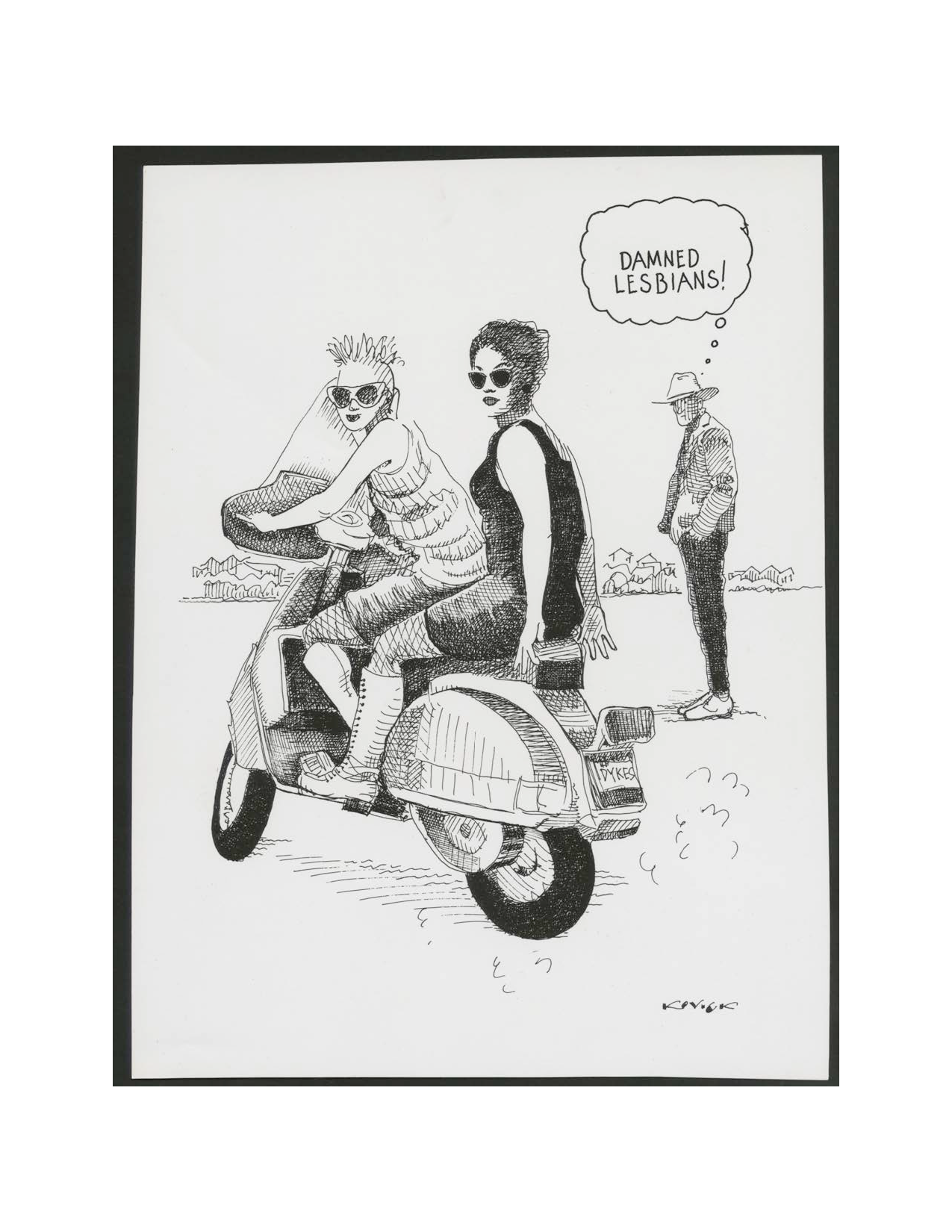curve magazine cartoons
a dyke Strippers’ Retrospective
July 13, 2023 - January 7, 2024
About the Exhibition
Comic by Kris Kovick published January 1992 in Deneuve (later Curve) magazine.
The landscape of lesbian cartoons in the 1990s was small yet vibrant; full of passion, satire, self-deprecation, and deep-cutting political and social commentary. Publishing these cartoons in the early years of Curve magazine (which was named Deneuve magazine between 1991-1995) was a natural fit, aligning with the pivotal lesbian publication’s cheeky voice and journalistic integrity, and enhancing both the aesthetics of the pages and its witty content. In the 1990s, these alternative artists had few platforms to publish their voices and their art. Curve magazine is proud to have been at the forefront of amplifying these marginalized voices and allowing them to further spread lesbian representation, culture, and humor.
The cartoons in this exhibition were published in Curve magazine between 1991-1999; they comment on the content of articles, provide interesting layout design, and are occasionally stand-alone strips with their own views.
The journalism in early 1990s Curve magazine reflected the diversity of the lesbian community but there was room for more representation amongst the artists whose comics were published. There were, indeed, lesbians of color creating cartoons during this period. While these voices may not have appeared in Curve magazine in its first decade in print, the exhibition is augmented with diverse lesbian artists from the GLBT Historical Society’s Archive so that The Curve Foundation can aim to provide an additional platform for them today.
Alison Bechdel put it eloquently in Curve’s October 1994 article, titled Dyke Strippers: “the artists Deneuve has gathered here come from zines and newspapers. They create strips, single-panel cartoons and longer graphic narratives. Some have had collections of their work published, others have self-published. Their subject matter covers, among other things, disabled lesbians, girljocks, leatherdykes, bisexuals and homicidal terrorists — but there’s room for more diversity. Unfortunately, the work you see here reflects the overwhelming whiteness of the field. I look forward to more women of color cartoonists drawing from their experiences and adding their crucial perspectives to this rich, graphic history.”
Artists showcased in this exhibit: Kris Kovick, Jennifer Camper, Hope Barrett, Rhonda Dicksion, Alison Bechdel, Cari Campbell, Andrea Natalie, Joan Hilty, Paige Braddock, Debby Earthdaughter, Diane DiMassa, Fish, Elizabeth Watasin, and Roberta Gregory.
About the Curator
Julia Rosenzweig is the Archive and Outreach Manager at The Curve Foundation. She is also an active contributor to the Lesbian Herstory Archives (LHA), where she co-manages the Lesbian Elders Oral Herstory Project, a project that documents lesbian elders’ life histories through intergenerational dialogue and knowledge-sharing. Julia has researched, archived, and curated a variety of LGBTQIA+ materials, including lesbian activist posters, episodes of Martha Shelley’s 1970s radio show Lesbian Nation, and Community Gallery institutional papers. Julia graduated from UC Santa Cruz with a degree in Italian Studies, and completed her MSLIS at Pratt Institute School of Information. Julia brings an ethos of community-building and understanding through conversation to The Curve Foundation. She is honored to steward archives that center the narrative control, empowerment, and agency of their creators.
About The Curve Foundation
The Curve Foundation was co-founded by Jen Rainin and Franco Stevens. The mission and vision of the organization are inspired by Curve magazine, formerly Deneuve, America’s best-selling lesbian magazine.
As Curve’s 30th anniversary approached, Franco reimagined how Curve would serve lesbians and queer women in its next chapter. To further her commitment to lesbian representation and visibility, she reacquired the magazine and donated it to the Foundation. Her journey to this historic decision is captured in the documentary film Ahead of the Curve.
Curve magazine is now a nonprofit project of The Curve Foundation, providing a portal into the hard-won lessons from our past that can inform our actions well into the future. The Foundation empowers lesbians, queer women, trans people, and non-binary people to share our culture and stories, connect with each other, and raise visibility. It achieves this mission through its two avenues: the Curve Award Program, which celebrates and supports queer journalists, and the Curve Archive, which provides access to the 30-year legacy of Curve magazine, as well as community programming that activates the inherent value of everyday culture and stories to build bridges and inform, raise visibility, and foster connections.




